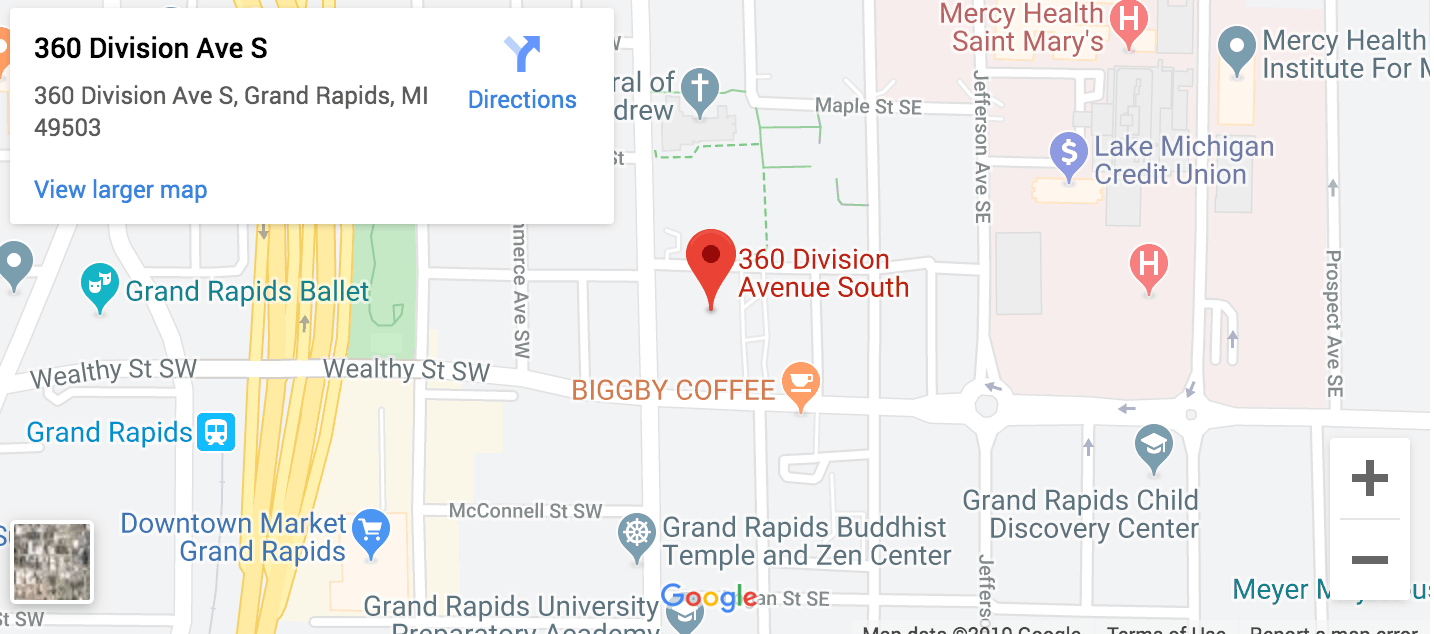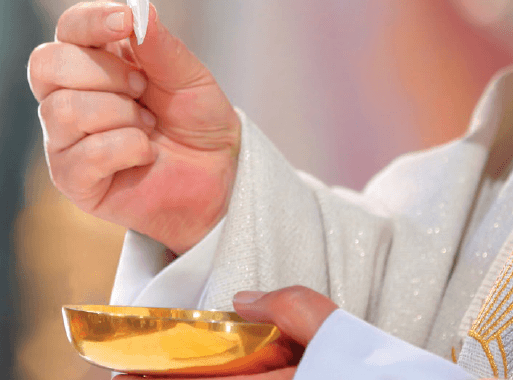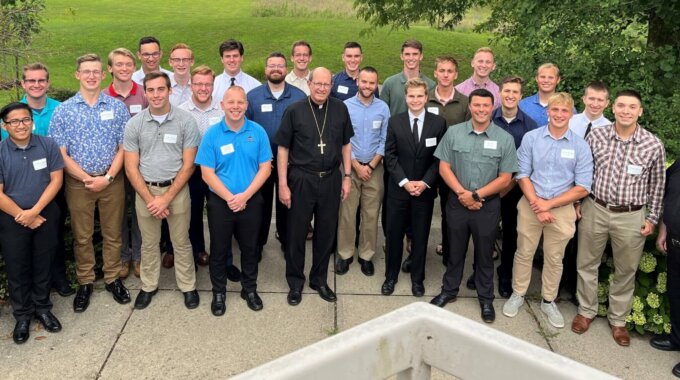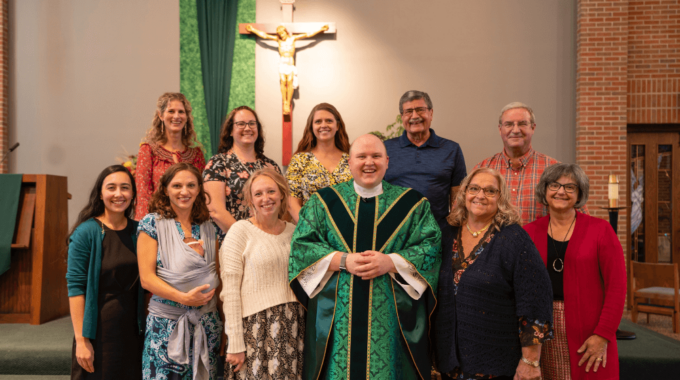November 2024 by Fr. Rob Mulderink Since this is my first time writing this column,…
Whether permanent or transitional, deacons are servants of all
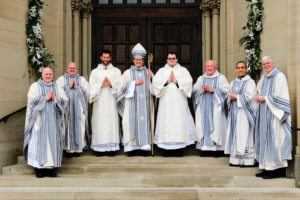 Bishop Walkowiak ordained seminarians Dominic Couturier and Daniel Orris Jr. to the transitional diaconate in May. This was an exciting day!
Bishop Walkowiak ordained seminarians Dominic Couturier and Daniel Orris Jr. to the transitional diaconate in May. This was an exciting day!
It reminded me of the excitement I felt when I was a ordained a deacon. After my internship and the many moments of confirmation in prayer, I was ready to give my life to the Lord with a complete “Yes” on ordination day.
Some may be wondering: How does the “transitional” diaconate differ from the “permanent” diaconate? Whenever we ask ourselves questions like this, we should immediately seek answers from three sources: 1) Scripture, to affirm that this belief comes from Christ; 2) the magisterial teaching promulgated and upheld by the Church (e.g., the Catechism of the Catholic Church, documents of Vatican II, etc.); and 3) sacred tradition, or teaching that has been lived out over time in the life of the Church.
Scripture tells us how the order of the diaconate began:
“At that time, as the number of disciples continued to grow, the Hellenists complained against the Hebrews because their widows were being neglected in the daily distribution. So the Twelve called together the community of the disciples and said, ‘It is not right for us to neglect the word of God to serve at table. Brothers, select from among you seven reputable men, filled with the Spirit and wisdom … so they chose Stephen, a man filled with faith and the holy Spirit [and others]. They presented these men to the apostles, who prayed and laid hands on them.” (Acts 6:1-6)
As the early Church grew, the need for more ministers became apparent; specifically to pray with the widows and the sick. It’s that age-old problem, plenty of work and not enough people. (cf. Mt 9: 37-38) The apostles realized they needed help. So they found others who would help provide for the spiritual needs of the faithful, especially those unable to gather with the community for the liturgy.
In the catechism, our Church clarifies for us the role of a deacon:
“Deacons share in Christ’s mission and grace in a special way. The sacrament of holy orders … configures them to Christ, who made himself the ‘deacon’ or servant of all. Among other tasks, it is the task of deacons to assist the bishop and priests in the celebration of the di-vine mysteries … and in dedicating themselves to the various ministries of charity. (CCC 1570)
The tradition of the diaconate is that an ordained deacon assists the priests of the Church in the ministry of the word, ministry of the altar and, finally, ministry of charity. Functionally, there is no difference between a permanent deacon and a transitional deacon. Both make the same promise at their ordination to be men of prayer, essential for one who is called to proclaim the Good News of the one he knows personally. Both are called to assist the priest or bishop during the liturgy of the Eucharist. As we read in the Book of Acts, the deacons also assist priests by bringing the Eucharist we celebrate out to those in need from our community. Finally, deacons are called to be servants of all. They are to know intimately the needs of the community so that they can help priests meet the needs of those in their care.
To put it simply, the difference between transitional and permanent deacons is not in their ministerial actions but rather in how they are called to serve going forward. Transitional deacons have eventual ordination to the priesthood as the end goal. They take on more responsibility in serving God and his people without losing their diaconal call to be the servant of all. Permanent deacons do not have another ordination they are preparing for but are no less important. They remain a vital part of the Church community, serving God and neighbor as a response to the one who taught us to serve.
